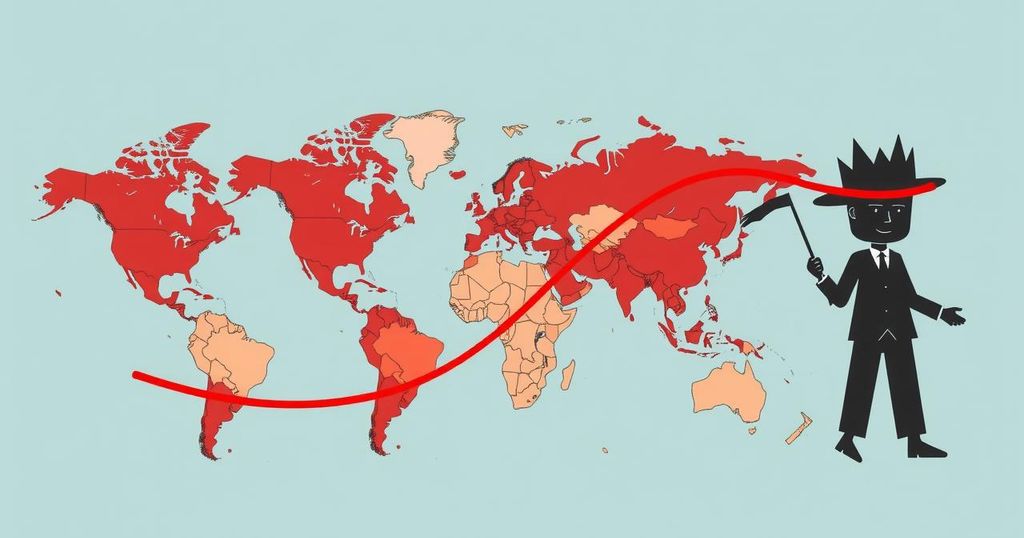International IDEA Reports Continued Global Decline in Democracy

A report by International IDEA reveals that democracy has declined globally for eight consecutive years, characterized by diminishing electoral credibility, falling voter turnout, and increasing election disputes. Key threats include foreign interference, disinformation, and misuse of technology. Although some regions demonstrate improvements, many countries are experiencing significant democratic backsliding.
Democracy has continued to decline worldwide for the eighth consecutive year, as highlighted in a recent report from the International Institute for Democracy and Electoral Assistance (International IDEA), which assesses democratic standards across 158 countries. The report emphasizes that 2023 witnessed unprecedented levels of election credibility issues, influenced by government repression, foreign meddling, misleading information, and the misuse of artificial intelligence during electoral campaigns. Specifically, traditional voter turnout has plummeted from 65.2% in 2008 to a mere 55.5% in 2023, revealing a significant disengagement from the electoral process.
International IDEA notes that one-third of elections from 2020 to 2024 were marred by disputes over results, demonstrating challenges to democratic stability. Kevin Casas-Zamora, Secretary-General of International IDEA, emphasized the crucial role elections play in reversing democratic deterioration. “Elections remain the single best opportunity to end democratic backsliding and turn the tide in democracy’s favor,” he stated. As the report illustrates, nearly half of all nations show regressive trends across multiple democratic dimensions.
Concisely, the report cited alarming rates of foreign interference and disinformation campaigns, as well as a growing prevalence of contested electoral outcomes. While regions such as Africa show some resilience, particularly in countries like Burundi and Zambia, others, such as Burkina Faso, have experienced noticeable declines amidst military transitions. Meanwhile, Europe faces challenges with civil liberties and judicial fairness declines, although areas such as Montenegro exhibit progress.
The report also highlights varying trends across the Americas and Asia-Pacific. Stability is observed in several countries, but notable declines are present in Guatemala, Peru, and Uruguay. In contrast, Australia, Fiji, and Thailand have shown improvements even as conflict persists in Afghanistan and Myanmar, where democratic principles have deteriorated sharply. The findings underline a pressing need for effective mechanisms to sustain democratic practices and legitimacy in the face of adversity.
The International Institute for Democracy and Electoral Assistance (International IDEA) is an organization that tracks and analyzes democratic practices globally. Founded to promote democratic governance and to provide insightful reports on electoral processes, the institute has recently published a significant report demonstrating the ongoing decline of democracy over the past eight years. This decline is characterized by challenges such as falling electoral participation, increasing disputes over election results, and the proliferation of misinformation and foreign influence, particularly in the context of evolving digital landscapes and political environments.
In summary, the findings of International IDEA’s report underscore a troubling trend in global democratic decline, marked by a reduction in electoral participation and a growing number of contested elections. With 47% of countries experiencing regression in democratic indicators, the necessity for safeguarding electoral integrity becomes paramount. As outlined by Kevin Casas-Zamora, the integrity of democratic elections is essential for reversing backsliding trends and enhancing civic engagement, thereby supporting the vital framework of democratic governance.
Original Source: apnews.com








